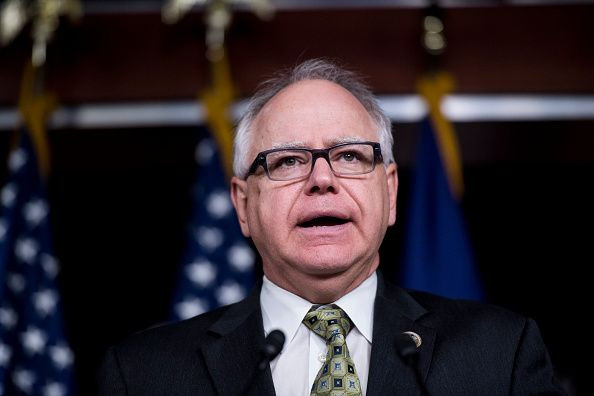George Floyd Protests Could Spark Coronavirus Second Wave, Experts Warn
KEY POINTS
- The standoffs and street skirmishes between police and protesters may lead to a massive spread of the coronavirus that causes COVID-19
- States hit hard by the protests such as Minnesota and Georgia are now preparing for the feared second wave
- A second wave will have severe effects on the U.S. economy, which is still reeling from the initial impact of the disease
On Saturday, Minnesota Gov. Tim Walz, whose state has been pummeled by street protests since the day after the death of George Floyd in Minneapolis on May 25, made public his fear that the daily face-to-face confrontations between protesters and police will see an inevitable spike, or second wave, in COVID-19 cases in his state.
"I am deeply concerned about a super-spreader type of incident ... after this," said Walz. "We are going to see a spike in COVID-19. It's inevitable."
Walz emphasized to Minnesotans that their state is still in the middle of a pandemic and passed 1,000 deaths last Friday. He said the state still has hospitals on the verge of being overrun with COVID-19 cases.
Former United States Food and Drug Administration (FDA) commissioner Dr. Scott Gottlieb warned Minnesota has already seen an uptick in new coronavirus cases and hospitalizations in recent days.
To head-off the worst of this incoming spike, Minnesota took the unusual but prudent step of making hundreds of masks available to protesters for free. Proof of Walz's misgivings should be apparent in the next two weeks if there's a pronounced surge in COVID-19 cases.
Minneapolis Mayor Jacob Frey also warned the protests will likely see a growth in COVID-19 infections.
The Minnesota Department of Health (MDH) on Sunday reported 664 more confirmed cases of COVID-19 and 14 deaths. Also on Sunday, there were 257 people with COVID-19 being treated in intensive-care beds in Minnesota. Another 298 were in regular hospital beds.
As of early Monday morning, Minnesota was number 19 among states with the most number of confirmed cases. This total stood at 24,850. The state also reported 1,050 deaths, according to Worldometer.
"If we were to see an increase, it might not occur until even next week," said Doug Schultz, MDH spokesman, Sunday.
He pointed out COVID-19 symptoms often don't appear until six to ten days after transmission. "It depends on who gets sick, do they get health care, do they get tested."
The George Floyd protests and riots are now gripping 25 major cities throughout the U.S. and in all cases the people are in close contact with one another, either facing off or battling to arrest or escape arrest.

Public health experts in these cities are now expressing the real fear that new waves of COVID-19 outbreaks are now inevitable and will negate whatever progress they've made since February in trying to control the spread of this disease for which there is still no cure.
Atlanta Mayor Keisha Lance Bottoms is now loudly and repeatedly urging demonstrators in her city to seek COVID-19 tests after attending protests. She again reminded Atlantans the pandemic is “killing black and brown people at higher numbers" compared to whites. Bottoms said she's “extremely concerned” about a huge jump in COVID-19 cases in the coming weeks.
© Copyright IBTimes 2024. All rights reserved.





















